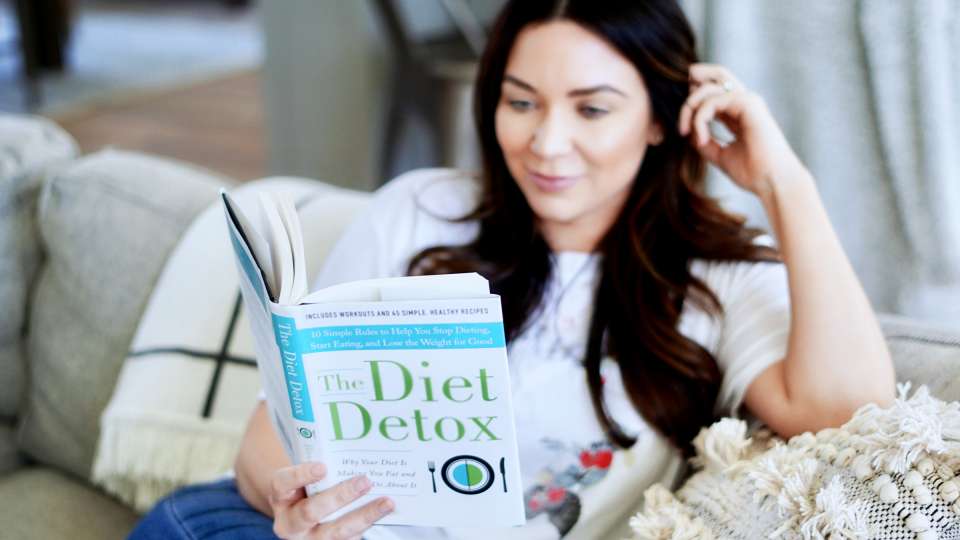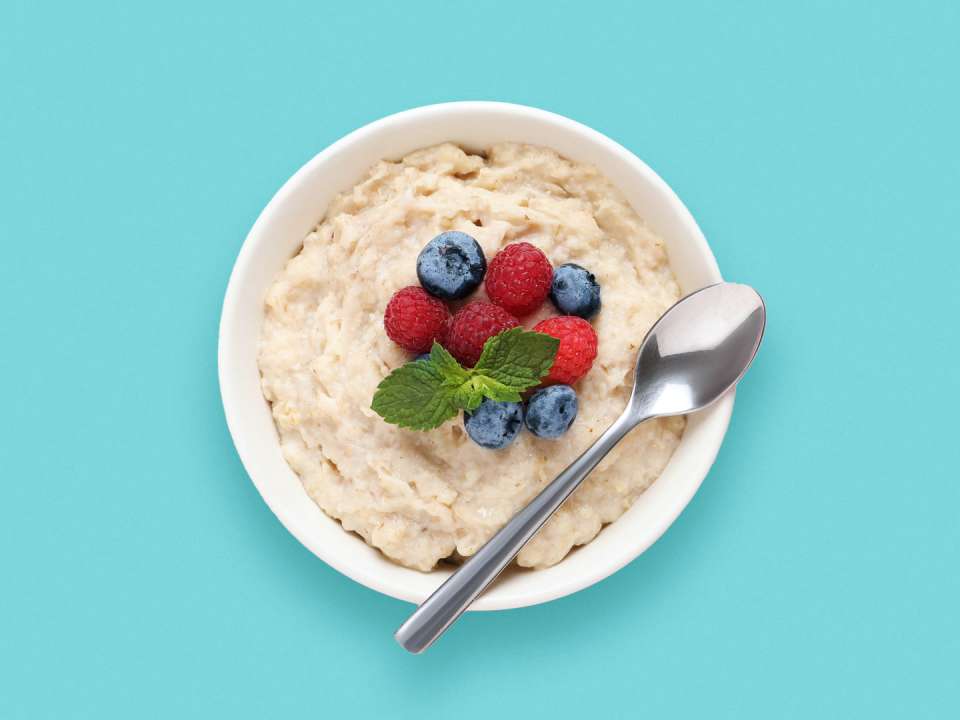
Despite all the celebrities who promote the keto diet, your friend who’s convinced Whole30 changed her life or that yoga classmate who insists juice cleanses clear her of all toxins, here’s a news flash for you: Restrictive diets don’t actually work.
Sure, we all know that person who obsesses over green juice and gets excited to eat kale for dinner every night. And that’s great for them. But for most of us, restrictive diets don’t actually make us any healthier — and they could be harmful.
First, there’s the narrative we all know and assume is correct: Weighing less means someone is healthier. That’s just not true, says Sarah Halter, M.D., a family medicine specialist who sees patients at the UW Neighborhood Factoria Clinic.
“I have many patients who are outside the ‘ideal’ BMI, but they’re exercising, they’re moving their bodies, they’re sometimes having their cookies but also eating their vegetables. Then I have patients who, for genetic reasons, have smaller bodies, but they hardly exercise and may not be enjoying a wide variety of foods,” she says.
Weight and what you eat can certainly play a role in health, but they aren’t the whole picture. The quality of the food you eat, your social relationships, hobbies, religion or spirituality, work-life balance and many other things factor into how healthy you are overall, Halter says.
The nutritional costs of dieting
Adhering to a strict diet can mean depriving yourself of nutrients your body needs, which certainly isn’t good for your overall health.
“The idea that not eating something, like carbs, because it’s ‘bad’ is ridiculous. Your brain runs on glucose, which comes from carbs. If you’re moving, you need carbs. There’s no goodness or evilness to them; they’re just fuel,” Halter says.
Dieting is also going against the way your body is wired: to maintain your weight. This trait evolved in humans from long ago when food was scarcer and took more effort to acquire, Halter says.
It’s no wonder trying to maintain a diet is so hard: You’re fighting nature when you try to cut out foods your body craves.
“You’re setting yourself up for failure. If you’re told not to eat things that you like, maybe for the first few days you can resist eating them. But then your brain will start taking over and you’re going to want what you can’t have,” she says.
And, while it is true for some people that losing weight could promote health, going on a diet to shed pounds probably isn’t going to work.
Even people partaking in well-known diets see dramatically different results in terms of weight, as proven in a study from 2018 that pitted low-fat dieting against low-carb dieting. Ultimately, neither significantly contributed to weight loss, and many people in both groups gained weight.
That study also found that the most effective way to lose weight was to limit, not completely restrict, foods that contribute to health problems. Those foods include things like added sugar and processed foods.
The psychological toll of dieting and diet culture
Aside from taking a toll on someone’s nutritional health, Halter has seen dieting take a toll on her patients’ mental health, too.
Dieting is stressful. You’re constantly fighting yourself and denying yourself things your brain and body want. You’re expecting a quick fix to work and to get you where you want to be, but since it most likely won’t, you’ll have to deal with the disappointment.
This mentality connects weight loss with your worth. If you see your weight as something you need to “fix” about yourself, and think of not sticking to a diet as a personal failure, that’s an unhealthy place to be mentally, Halter says.
“I have patients who are exercising or doing yoga and eating healthy foods but those last 10 pounds haven’t come off, and you can tell they just have this intense feeling of failure that they have messed up their lives. I think we’re doing a real disservice to people if we’re just looking at the number on the scale and not looking at the whole picture,” Halter says.
Thinking this way often extends to individual food items themselves. Desserts and that Dick’s burger are “bad” foods; salads and fruits are “good.” No food is going to make you a better or worse person just by eating it.
“I take real issue with the idea that food has moral value. Of course, if you sit around all day only eating cake, that’s not good for you, but you can sit around all day only eating broccoli and that’s not good for you either,” Halter says.
The ultimate goal is to cultivate a healthy relationship with food, where you value it as fuel and value the way it makes you feel. For some people, this might be a diet; for others, not so much.
“You can’t universally tell everyone, ‘This is how you’re supposed to eat,’” Halter says.
There’s no right or wrong way to eat more healthfully, there’s only the way that ends up working for you. Food, after all, is about more than nutrition, Halter says. There are foods you love and foods you hate, foods that remind you of childhood or special dishes you always make with your family. All of these different aspects of food matter and should be factored into your personal relationship with eating.
Tips for healthy eating that actually work
Here are some ways to change your relationship with food and make healthier choices during the process.
See a dietitian
If you want to change the way you eat, consult the experts. This could mean scheduling a visit with your doctor, or even asking for a referral to a dietitian. Though doctors and nurse practitioners can certainly help you come up with a healthy eating plan that fits your life, a dietitian will be able to delve more deeply into your wants and needs to figure out what’s the best course of action, Halter says. (She has consulted with a dietitian several times.)
Be mindful about what you eat
There are several ways to put more thought into what you put in your body. You can pay attention to what you’re eating when you’re eating it, instead of shifting your focus to a TV show or your phone. This can help you stop eating when you truly feel full, not just when your plate is empty.
Paying attention to your hunger cues is important throughout the day, too, not just during a meal. If you feel like eating, take a moment to ask yourself why. Are you actually hungry, or are you just bored? Do you need a little fuel before you launch into that big project at work, or are you just stressed and want to eat your feelings?
Another way to be mindful about food is to try meal planning, which doesn’t have to be as complicated as it’s often made out to be. If you put more thought ahead of time into what you’re going to eat that week, you’ll probably feel obligated to stick to your plan — otherwise all those fresh veggies you bought will go to waste, which is just a waste of money.
Keep a food diary
If you want a better idea of what you’re actually putting into your body, in great detail, consider keeping a diary or notebook (or even just using the notes app on your phone) where you can track everything you eat and drink each day. It takes a little effort and dedication, but it can give you a better idea of what foods you eat a lot of and where you might want to make changes.
But what if you’re busy all the time? That’s OK; a recent study showed that it only takes around 15 minutes a day to keep an accurate food diary that will help you on your journey to better health.
Challenge unhelpful advice
If you’re one of the many people who have been told by a medical professional that you need to lose weight, instead of letting the conversation end there, ask them what specifically they recommend.
“I feel strongly that telling someone just to lose weight sets them up for failure,” Halter says.
Start a conversation. Mention any roadblocks in your life that could stand in your way of success. Share your goals and discuss what kind of relationship with food you’d like to have.
Though it may seem insensitive, the “just lose weight” statement usually comes from a place of good intent — your doctor is looking out for your health, after all. But they may not realize that hearing those words alone is unhelpful. So be your own advocate.
Practice forgiveness
Instead of falling back on the tired concept that certain foods are bad and others are good, focus on what makes you feel good when you eat it and on providing your body with adequate fuel. And recognize that, if you slip up from time to time, it’s not a moral failure and you don’t deserve to beat yourself up over it.
“There will be some nights where you do have a piece of cake for dinner. That doesn’t mean you have to only eat vegetables the next day. You are always allowed to eat and to fuel your body,” Halter says.

 Healthy ideas for your inbox
Healthy ideas for your inbox





